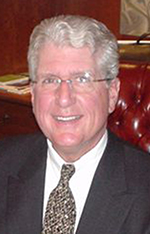In 1978, David T. Fisher purchased an Oldsmobile dealership from his father and opened Suburban Oldsmobile in Troy. Since then, the Suburban Collection has grown to include nearly 40 franchises throughout the country and ranks among the 20 largest automotive retailers in the United States. Fischer, now the company’s chairman and CEO, spoke with DBusiness Daily News about current projects and how the company handled the wind down of the once-popular Saturn brand.
DDN: What projects are you currently working on?
DF: Right now, we have several business projects. We have one in California, and one in Novi, where we’re redoing an Infiniti store. We’re building new Chrysler Jeep Dodge stores in Farmington Hills and Ann Arbor, and we’re building a new Toyota store in Troy.
One of the good news stories about Michigan is how the business environment is changing. With what we’re seeing, we feel much more comfortable about coming back and reinvesting in this area because of the long-term opportunities we’re viewing.
DDN: What do you attribute your company’s success to?
DF: One of the main things is our people. There are 1,800 full-time employees at the Suburban Collection. Without good people — without dedicated, compelling thoughts from our employees — this wouldn’t happen. One person can’t do all of this. We’ve got a great team.
Also, the car business has grown, and we’ve been able to take advantage of opportunities normally by purchasing (dealerships) in a number of places, which has helped us grow the business. Last year, we did about $1.5 billion in sales and sold about 41,000 new and used cars. We figure that will go up 10 or 15 percent for 2013. I suspect it will be a record for us.
DDN: How is the industry for auto dealers today?
DF: The industry is making money at lower volumes and delivering fabulous product. We’re not without headwinds, but it’s nothing like we experienced a few years ago. You can’t do business in the automobile industry and not remember what happened in 2009 — with the bankruptcies of Chrysler and General Motors and, really, the restructuring of the industry. We are in a sustainable business mode that we weren’t (in) a few years ago.
DDN: You lost a few dealerships when General Motors discontinued the Saturn brand — how did you handle that?
DF: We actually lost 11 or 12 dealerships: eight Saturn, two Hummer, a Saab, and a Buick. At one point, we had 350 people (in those locations) and $300 million in sales that all went away within a couple of months.
The first thing we tried to do was save as many employees as we could by offering them employment in other places. And then we just had to have an orderly sell down of the product. We still have two of the Saturn facilities in Florida, but those will work out. The bulk of them are gone.
It was a lot to do, but we were very fortunate to come through it the way we did. We’ve been able to absorb that shock and move on.
DDN: Your company is very involved in community outreach. What have you been up to recently?
DF: We just finished “Making Strides Walk” last week. Our employees organized it and ran it. We raised nearly $100,000 for cancer research and programs. And that was this month. One of the other major projects happens every February when we do a blood drive across several of our stores. We also do a Teacher of the Year program, which honors the people that take really good care of our kids.
We try to do a number of events a year because it’s who we are. It’s the market we’re in. It’s the concern of our folks for their customers. I was born and raised in southeastern Michigan. This is where my home is. This is where the core of our business is.






